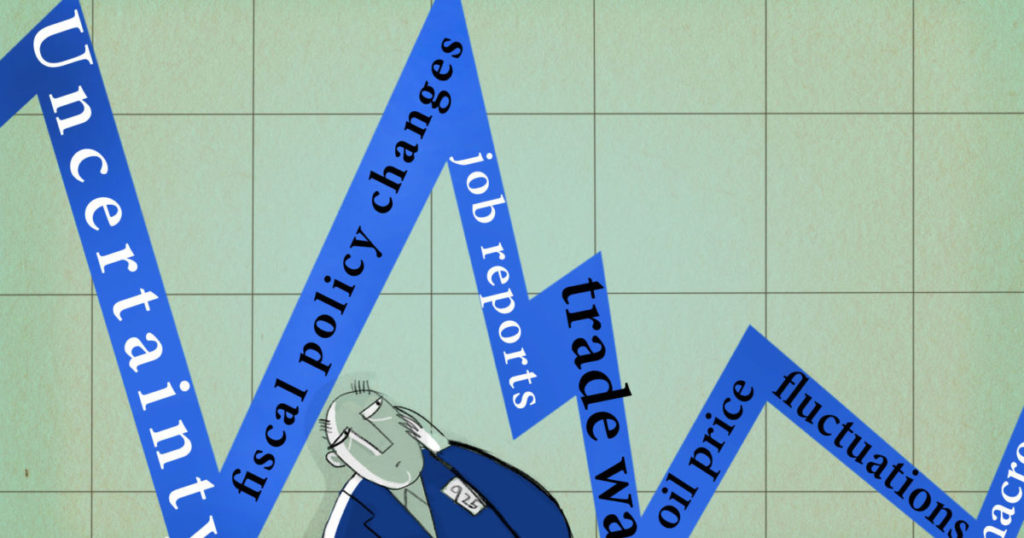“Successful investing takes time, discipline and patience. No matter how great the talent or effort, some things just take time; You can’t produce a baby in one month by getting nine women pregnant.” investor
Warren Buffett
Just like an investment, a game of golf takes time, discipline and patience to become a pro. As viewers, we often don’t get to see the practice, planning, and coaching that goes into making every shot count in the game of golf. These factors heavily influence the outcome of a player’s game, but as a golfer or an investor, a lot more must be learned than one would think. There are many similarities between what it takes to become an expert golfer and what one needs to be a successful investor.
Talk of the largest opportunity to earn more money and many will first point to investment, without reckoning to its potential amount of risk. Investment in its long-term is even more demanding as it requires an individual or company to develop unfaltering patience for a longer period of time. And a willingness to accept a certain amount of risk in the pursuit of potentially higher rewards. It also suggests that enough capital is made available to afford to tie up a set amount for the period.
Many financial experts suggest that before making the ultimate decision on how to invest money long-term, one must build a sufficient emergency fund. After which, longer-term financial goals such as; treasury bills, shares and stock exchange, interest-paying bonds, zero-coupon bonds, mutual funds, exchange-traded funds (ETF), alternative investments and, retirement accounts, can be explored.
While the stock market riddles with uncertainties in recent times; certain tried-and-true principles can help investors boost their chances for long-standing success and these include
Perceive the Uncertainties of the Market
All financial outcomes are loaded with unpredictability. Unfortunately, some investors fall victim to claims by people who contend that they are the “fortune tellers” of the investment world. They tend to predict the future and provide inexperienced investors with financial advice through “foresight”.

In a precarious world of this nature, it is important to acquire the most realistic and trustworthy information on how to invest money successfully. This means understanding that every investment is a ‘gamble’ of some kind. The accuracy of the investment market and its influence on the future cannot easily be determined. In reality, everyone is a prophet of what they very best know-how.
Cut out Emotional Ties to an Investment
Never fall in love with an investment. Every investment package comes with its own levels of risk and reward. Whereas stocks, mutual funds, and exchange-traded funds (ETFs) have higher risk and higher return potential, very safe investments such as Certificate of Deposit (CD) tend to have low yields, while medium-risk assets such as bonds have somewhat higher yields. Thus, investors who want to generate a higher return will need to take on higher risk.
A piece of good advice on this is to look around and learn about safe investments that provide the desired level of reliability and pay-out. Long-term success demands deep-dive research.
Combine Research with Confidence
Rather than panic over an investment’s short-term movements, it’s better to track its big-picture trajectory. A rewarding feature of successful long-term investment is developing confidence in an investment’s larger story and avoiding the tendency to being swayed by its short-term volatility.
A common mistake by most investors is relying on hunches. Everyone enters into an investment with the hope of making more money and is susceptible to what is called “a very good hunch” that returns are likely to increase. Regardless of the temptation that hunches may present, it is important to avoid them in order to stay unbiased while leaving no stone unturned in your investigation. Whereas optimism means expecting the best, confidence comes from knowing how to also handle the worst.
Adopt a Future Perspective
Investing requires making informed decisions based on things that are yet to happen. Past data can indicate things to come but is never guaranteed.
In the 1990 book “One Up on Wall Street” Peter Lynch stated; “If I’d bothered to ask myself, ‘How can this stock go any higher?’ I would have never bought Subaru after it already went up twentyfold. But I checked the fundamentals, realized that Subaru was still cheap, bought the stock, and made sevenfold after that.”
It is vital to invest based on future potential versus past performance. While large short-term profits can often entice market neophytes, long-term investing is essential to greater success. Also, while active short-term trading can make money, this involves greater risk than buy-and-hold strategies.
Find the Best Fit Strategy and Stick with It
There are many ways to choose stocks, and it’s important to stick with a single philosophy. Vacillating between different approaches effectively makes you a market timer, which is dangerous territory. A good strategy for investors is to avoid overemphasizing price earnings ratios. Price-to-Earnings (P/E) ratios are best used in conjunction with other analytical processes. Thus, a low P/E ratio doesn’t necessarily mean a security is undervalued, nor does a high P/E ratio necessarily mean a company is overvalued. In general, the higher the P/E ratio, the more expensive the stock.

Acknowledging the need for investment strategy cannot be downplayed. A good example is how the renowned investors, such as Warren Buffett, focused on his value-oriented strategy and steered clear of the dotcom boom of the late ’90s; consequently, avoiding major losses when tech startups crashed.
Learn from Mistakes and Move On
There is no guarantee that an investment will rebound after a protracted decline, and it’s important to be realistic about the prospect of poorly-performing investments. If it doesn’t pay the first time, forget it. For instance; the best alternative when an invested stock doesn’t reap the expected result is to sell the stock.
Although losing stocks can psychologically signal failure, there is no shame recognizing mistakes and selling off investments to stem further loss. Remember, ego has no place in becoming an affluent investor.
Resist the Coax of Penny Stocks
Low-priced stocks can be very alluring as it is believed to carry low risks. However, low-priced stocks may not be necessarily “cheap”. This is why every investor must look beyond the mere “cheap” price of a stock. A number of factors can contribute to how high or low a stock price can be. For instance, during stock split (when an institution decides to divide its existing shares into multiples), the price per each of the divided shares reduces by default while their values remain unchanged. Whether a low-valued stock plunges to zero or a high-valued stock does the same, the initial 100% of investment can still be lost, thus, indicating that both stocks carry a similar downside risk.
When the shares of an institution become undervalued, it can also lead to a low-priced stock. Undervalued stocks are stocks sold at prices presumed to be below their true intrinsic value. Therefore, using only the market price of a stock to determine its worth maybe sometimes deceptive. In fact, some stocks may not be even worth the low price. For instance, penny stocks that post fewer earnings may turn out to be costly if their P/E ratio is high.
Be Concerned About Taxes, but Don’t Worry
The fear of the power of investment taxes to reduce gains can cause investors to make misguided decisions. Companies operating in Ghana are liable to pay varying levels of taxes depending on the sector of operation, and the location of the project and whether the company is listed on the Ghana Stock Exchange.
Taxable profits are based on profits declared in audited accounts subject to adjustments made for capital allowances. For example, if one invests in a stock and makes 15 percent on the money, the gains on the investments will be taxed. However, while tax implications are important, they are secondary to investing and securely growing money. While striving to minimize tax liability, achieving high returns should be the primary goal.
The Investor’s Final Decision Matters Most
Beyond investment, everyone has an opinion on everything; and is entitled to each of them. In making investment decisions, concerns are about what works and what does not spring up in discussions on the most viable investment option. However, the question is do these varying concerns override the investor’s ultimate decision to make an investment or choose a particular plan of action?
Teamwork could be employed in making a decision, but, it is important to compare researched knowledge to the majority opinion of others. In matters of this nature, the discussion of thorough research and careful analysis cannot be overstretched. Remember, the investor is fully responsible for every investment decision.
Invest like the “Big Shots” to Make More Money
Remember, the stock market outlook is highly speculative. People who are making their living by buying and selling stock for others dominate and control the market. And these people also make mistakes in their dealings. Profound among many of the world’s most successful people who have ever invested in stocks is the mind-set that; there is no “best way” to make more money in the stock market.
Becoming a successful investor requires treading cautiously. Constant learning, gaining financial advice, keeping a close eye on investments and picking up the pieces when things go wrong; are the factors that elevate a small investor to a big-time investor. The product of successful investment is financial freedom which facilitates advanced livelihood and a much more comfortable lifestyle.
There is nothing wrong with worrying about investment speculations. Considering the spate of economic conditions and the huge sum of money needed for long-term investment, it is only expedient to have concerns about the investment market. But remember, the decision to invest doesn’t only come with watching investments more carefully and making more money. Remember, “Bulls make money and bears make money, but pigs never do.” Conquer greed, stay guided and milk some more money as you make wise long-term investment decisions. investor
Read Also: Our informal sector is huge and majority of them are women- GEA























